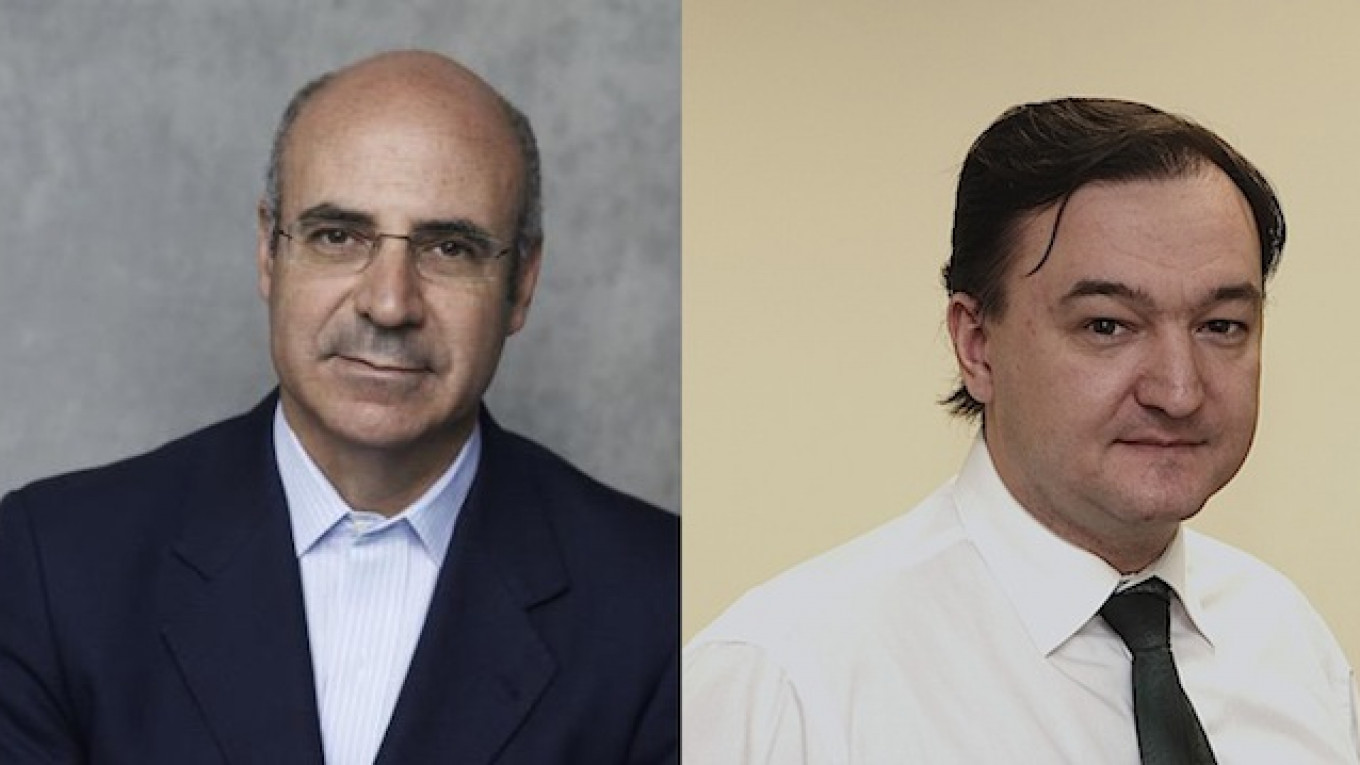The Moscow International film festival on Tuesday screened “The Magnitsky Act — Behind the Scenes.” The central premise of the film is that the U.S. was duped into sanctioning innocent Russian officials by adopting the Magnitsky Act after the death of lawyer Sergei Magnitsky.
I was Sergei’s boss and I am both a combatant and a casualty in the war between the Russian government and the truth. Since Magnitsky?€™s arrest almost seven years ago, a group of his friends, colleagues and human rights activists have been in an unending war with the Russian government.
We investigate everyone involved both in the crimes Sergei reported and in his murder. We name them, shame them and push for their total exclusion from the West and the confiscation of every asset we can find outside Russia's borders.
We are a small group of people standing up to the Russian government and doing the one thing that scares them the most ?€” lobbying for laws to take away the money and international travel privileges of its kleptocrats. The war has been fought in many forums ?€” in the courts, in parliaments, on YouTube and now the fight has expanded to the big screen.
The importance of this war from the Russian government?€™s perspective is simple to understand. Someone stole hundreds of millions of dollars from the Russian Treasury. If corrupt Russian officials were behind it, then the Russian government has been protecting the right of its officials to steal from their own people ?€” up to the point of sanctioning murder. That is not a narrative the Russian government can afford. Not at home and not abroad.
And so the Russian government has its own narrative ?€” we stole the money. All those rich Russian officials are innocent. In fact they are positively heroic. They bear the heavy burden of their unjust persecution with grace and deserve our sympathy.
This brings me back to the movie. I was disgusted the first time I saw it. It repeated the usual claims of the Russian government ?€” that Magnitsky's arrest was justified, that he wasn't mistreated in prison, that his death was natural.
The premise of Andrei Nekrasov?€™s film is that while making a television docudrama, he discovered alarming facts about the case. His hero was a crook, the crooks were heroes and the West was ?€?duped.?€?
The more I watched, the angrier I became, particularly at the moment when Nekrasov interviewed Sergei?€™s mother, Natalya. She says in Russian something that clearly means ?€?It is difficult for me to accept [deal with] the fact that Sergei was beaten just before he died and Nekrasov ?€” fluent in both Russian and English ?€” disingenuously translates that as ?€?It?€™s difficult for me to accept he was beaten before he died?€? and Nekrasov chimes in ?€?Ah! Even Magnitsky?€™s mother doesn?€™t believe he was beaten!?€? That was when I knew all I needed to know about Nekrasov.
When the Panama Papers story broke, the Organized Crime and Corruption Reporting Project (OCCRP) claimed that Putin?€™s good friend, the cellist Sergei Roldugin owned shell companies through which hundreds of millions of dollars had passed.
The Economist added oil to the fire and reported that the OCCRP claims to have bank records showing that one of Roldugin's companies even got some of the money from the crime Magnitsky reported. So what happens? The movie was immediately edited to include a part that attempts to exonerate Roldugin.
The timing of the movie is as illuminating as its director?€™s edits. It was released just as the U.S. was about to expand the Magnitsky sanctions.
It was also released just as Russian television showed a film nationwide that purported to show that William Browder and oppositioner Alexey Navalny are CIA and MI6 spies.
Just as the Russian government was making a new application to Interpol for William Browder?€™s extradition and just when Putin?€™s ultra-rich friends were wining and dining members of the U.S. Congress who were visiting Russia just before a vote on the expanded Magnitsky sanctions.
Seen in context, everything is clear. Nekrasov has a client and a job to do. He is one of many doing that job. Creating doubt where there is none. Fighting efforts to deny kleptocrats access to our banks and our countries. That?€™s what?€™s really happening behind the scenes. Nekrasov may be a director but he?€™s not the one writing the script.
Jamison Firestone is an attorney and Sergei Magnitsky's former boss.
A Message from The Moscow Times:
Dear readers,
We are facing unprecedented challenges. Russia's Prosecutor General's Office has designated The Moscow Times as an "undesirable" organization, criminalizing our work and putting our staff at risk of prosecution. This follows our earlier unjust labeling as a "foreign agent."
These actions are direct attempts to silence independent journalism in Russia. The authorities claim our work "discredits the decisions of the Russian leadership." We see things differently: we strive to provide accurate, unbiased reporting on Russia.
We, the journalists of The Moscow Times, refuse to be silenced. But to continue our work, we need your help.
Your support, no matter how small, makes a world of difference. If you can, please support us monthly starting from just $2. It's quick to set up, and every contribution makes a significant impact.
By supporting The Moscow Times, you're defending open, independent journalism in the face of repression. Thank you for standing with us.
Remind me later.


